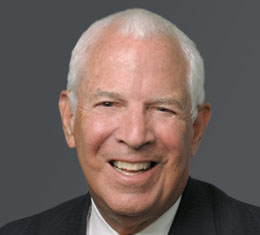Enact State and Federal Good Faith & Fair Dealing laws to overrule devious franchise contract provisions.
Janet Sparks writes at Blue MauMau that franchisee attorney Lee Abrams had no problem playing along with last year’s American Bar Association Forum on Franchising’s theme in its plenary session, “If I Had a Wizard’s Wand,” expressing his wish for franchise law reform.
The Chicago Mayer Brown lawyer said if he had a wizard’s wand he would enact generally applicable legislation, either a federal statute or individual state statutes, bringing certain elements of “implied covenant of good faith and fair dealing” into a system of regulation. Abrams said he would also create a private right of action for violations of the Federal Trade Commission Act and the FTC Franchise Rule on unfair or deceptive acts or practices.
Enact Good Faith and Fair Dealing to overrule franchise agreement provisions
The past chair of the American Bar Association Forum on Franchising explained that the contemplated good faith and fair dealing legislation would override any franchise agreement provision that purports to give a party the right to act arbitrarily or unreasonably in exercising its sole discretion. And it would provide that if a franchise agreement gives either the franchisor or the franchisee discretion with respect to any particular action or inaction that is contemplated by the agreement that party must act reasonably toward the other party when exercising that discretion.
“A party using this statutory provision as the basis for challenging the other party’s conduct would not be required to prove bad faith or malice; rather, such a plaintiff could prevail by proving that the defendant’s conduct was not commercially reasonable, in light of all relevant circumstances,” the attorney further explained
Although the law is well-settled that every contract contains an implied covenant of good faith and fair dealing, Abrams said the effectiveness of that implied covenant in franchise agreements has been diluted by judicially imposed limitations on its scope. “Most significantly, courts have held that the implied covenant cannot be used to modify or defeat express language in a contract, and that it only applies to matters that the contract does not cover expressly. As a result, many franchisors have included in their franchise agreements express contractual language that gives the franchisors complete discretion to act in certain respects, and/or provides that the franchisors are free to act arbitrarily when they exercise discretion that the franchise agreement grants to them,” he asserted.
One example Abrams gave involved a franchisor’s right to open additional units (either franchised or company-owned units) in close proximity to a franchised unit. In the 1990s, several courts held that franchisees relying on the implied covenant of good faith and fair dealing could prevent franchisors from cannibalizing the business of the franchisees’ existing units in that manner.
The counsel said many franchisors responded to those decisions by including in their franchise agreements provisions that authorize the franchisor to open additional units wherever it wanted. It expressly stated that the franchisee has no right to prevent the franchisor from doing so. “Where a franchise agreement contains such provisions, the courts generally have held that the implied covenant of good faith and fair dealing does not prevent the franchisor from opening a new unit that is in close proximity to the franchisee’s existing unit, even though the new unit inevitably will take business from the existing unit,” he stated.
Abrams feels the legislation would override contractual provisions in franchise agreements to the extent that they would permit either party to act unreasonably or arbitrarily toward the other. Legislation would require both parties to a franchise agreement – franchisor and franchisee – to act reasonably and in good faith toward each other.
“If the legislation were to have retroactive effect, however, it would override, to the extent noted above, contractual provisions in existing franchise agreements that the parties had negotiated with the expectation that their agreements would be interpreted in accordance with the plain meaning of the contractual language. Because that potentially would create constitutional issues, the legislation should be written so that it affects only franchise agreements that are entered into after the effective date of the legislation,” he explained.
